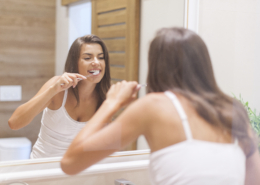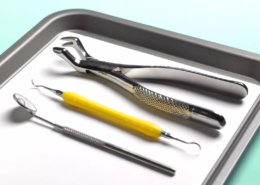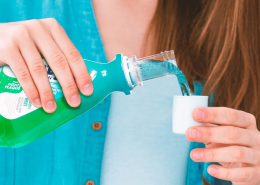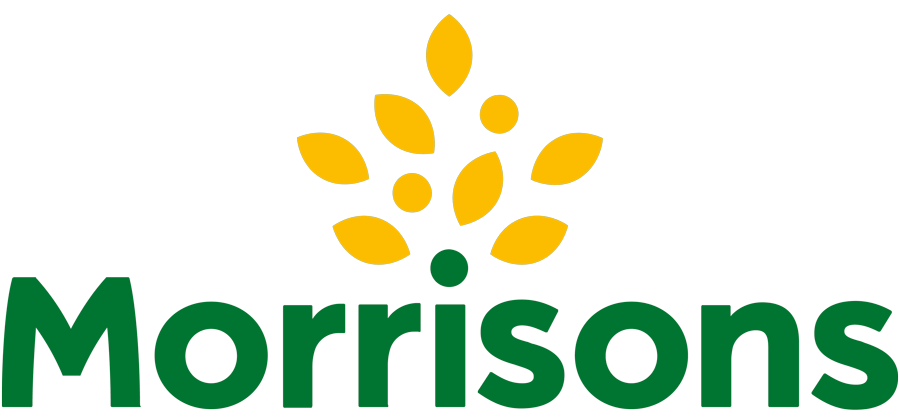 https://www.dentylactive.com/wp-content/uploads/2023/12/gum-disease-scaled.jpg
1707
2560
admin@dentyl
https://www.dentylactive.com/wp-content/uploads/2023/04/dentyl-1.svg
admin@dentyl2023-12-15 10:06:182024-05-23 12:08:17Does Mouthwash Help Gum Disease?
https://www.dentylactive.com/wp-content/uploads/2023/12/gum-disease-scaled.jpg
1707
2560
admin@dentyl
https://www.dentylactive.com/wp-content/uploads/2023/04/dentyl-1.svg
admin@dentyl2023-12-15 10:06:182024-05-23 12:08:17Does Mouthwash Help Gum Disease?The dawn of a new year often brings with it a raft of resolutions. There’s a sense of a fresh start, an opportunity not just for personal health based resolutions but also ones that will benefit the whole family.
Working on the family’s oral-care routine might not be an obvious one for the list but there are so many good reasons to keep your family’s teeth and gums healthy. Of course you want your family to have sparkling teeth (and dispel the myth that Brits have terrible teeth), but more importantly for your family to avoid tooth decay and gum disease.
Worryingly, research shows that one in four young children develops signs of tooth decay before they start school and half of all children between the ages of 12 and 15 have cavities1. Luckily, there are simple ways to keep your family’s teeth strong and healthy.
Here are some suggestions to help:
(1)WebMD Peter Jaret: Healthy Teeth for Life: 10 Tips for Families
1. Use an electric toothbrush
From the age of 3, children are able to use an electric toothbrush (for children younger than 3, use a manual toothbrush with extra soft bristles). Tests have shown that an electric toothbrush is better at removing plaque. A trip to Superdrug, Tesco or any other large supermarket should provide you with a good selection of electric toothbrushes with appealing Disney and Superhero designs for the younger ones. They are definitely worth the investment.
2. The two by two rule
It’s important to brush for two minutes, twice a day. It might seem obvious, but make sure you and your family brush first thing in the morning before eating and drinking and last thing at night. It’s best to supervise brushing until your kids are at least seven years old.
With the morning school-run rush and the end-of-the-day weary haste to get them off to bed, it’s easy to supervise what really is a token quick brush that isn’t as thorough as it should be. Two minutes of brushing is the recommended time to do a proper job. This is actually quite a long time and if attention span (and lack of it) is a factor – make the routine fun. Get a wacky timer that makes an amusing ring when two minutes is up or one of those two-minute sand timers that you tip up to start. The two-minute rule should then become engrained from an early age as part of the teeth-cleaning routine.
3. Check your fluoride content
You can do this by looking at the back of the tube (or mouthwash bottle) and referring to the list of ingredients. Fluoride is really important as it helps strengthen teeth enamel and helps protect the teeth from cavities. Children up to three years of age should use a smear of toothpaste with 1000 ppm (ppm stands for parts per million in case you were wondering). For children over three, use a pea-sized amount and make sure the toothpaste contains from 1350ppm to 1500ppm fluoride.
4. Use a mouthwash
Studies have shown that mouthwashes can reduce more plaque, and signs of gum disease, when used in addition to tooth brushing compared with tooth brushing alone2. It’s important to remove as much bacteria from your mouth as possible. When bacteria in your mouth combine with saliva, this creates a sticky film, which builds up on your teeth – known as plaque. Plaque can lead to tooth decay and potentially gum problems. The benefit of a mouthwash is that it can reach places that brushing can’t, and remove any debris dislodged by brushing and flossing. Supplementing teeth brushing with a 30-second swish of an antibacterial mouthwash will help give added protection from the build-up of plaque, as well as fresh breath. Dentyl Mouthwash is alcohol free so doesn’t sting, unlike some mouthwashes. And with its nifty dual-colour and appealing Smooth Mint, Fresh Clove and Icy Cherry flavours (definite teenage appeal), is an ideal family mouthwash and suitable for children aged 6+.
These simple improvements are realistically achievable and by implementing these suggestions, you’ll be creating the foundation of a good family oral care regime that will ultimately benefit their health.
(2) www.123dentist.com/using-mouthwash-is-more-effective-than-brushing-alone/











